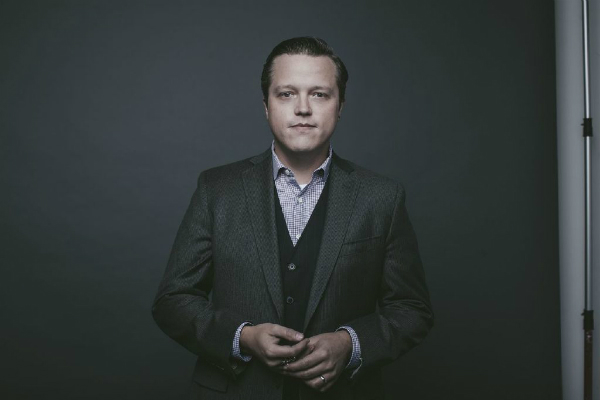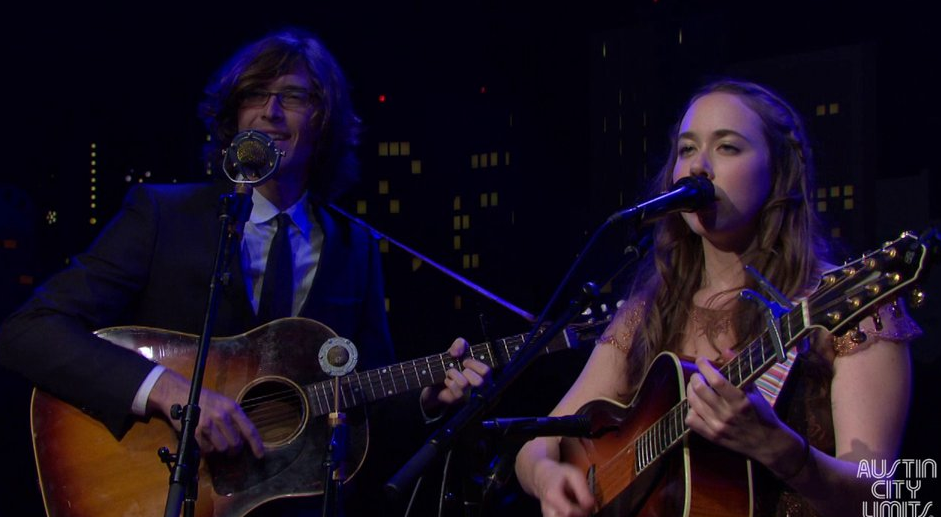
Videos by American Songwriter
And no sooner had the audience quieted its appreciation for the technical Fleck number when it was shouting again at Sarah’s invitation to Joey and Kenneth to join in, who added their talents to “Annabelle Lee” and “Mile On The Moon.” Kenneth’s guitar work was brilliant, while Joey, who earlier had panned his own skill on guitar told Sarah, “I’ve been studying these songs for two years to be up here to play them with you. It’s quite an honor.” The audience laughed at his self-deprecation, to which he shot back, “I’m dead serious.” At this, they howled even louder at the slickly timed double entendre. Alone again, the trio broke into “1,000 Things,” another excellent track from her latest album on which Hargreave’s violin cries with an air of Eastern European melancholy. “Over the Edge” followed before a soulful rendition of Dylan’s “Ring Them Bells” brought cheers at the opening lines. Next, the Grammy-nominated instrumental, “Mansinneedof,” bounced with Sarah’s jumping mandolin work. Regrettably it was getting on to the witching hour and the final number, “Fuel The Fire,” was announced to the hissing of the crowd. The speed and energy of its cadence allowed all three instruments to shine brilliantly for one more round while the power and clarity of Sarah’s voice, resonant with the plaintiff tone she has mastered, made for a solid conclusion in its blend of force and finality. There would of course be the encore, which was asked for with clapping and stomps on the old pier and beam dance floor that sounds like a massive kettledrum when pounded on in earnest – an effort which was rewarded when all five musicians returned to the stage. As is her custom, Sarah asked the audience to join in on Tom Wait’s “Come On Up To the House” and you can bet your ass we all did. It was a rollicking collaboration between the artists and the audience and made for a truly perfect final number.
The performances on this night in Gruene Hall were more than good, they were brilliant. It was a welcome respite from the thin, mad world of 21st century pop that in spite of all its insistence upon individual uniqueness and personal ideology is so boringly repetitive and intellectually empty. In looking to the past and drawing from its lessons and its offerings without being hidebound by blind allegiance we are as free to honor Lou Reed’s passing and the art he made as we are to avoid the excesses of his time. He learned to. In the end, we have no other real option than to take care of our own business, sneer at trend chasing, and support those artists and labels who do the same. In the end we might build a community around these ideals with an internal economy that is sustainable for its participants.













Leave a Reply
Only members can comment. Become a member. Already a member? Log in.